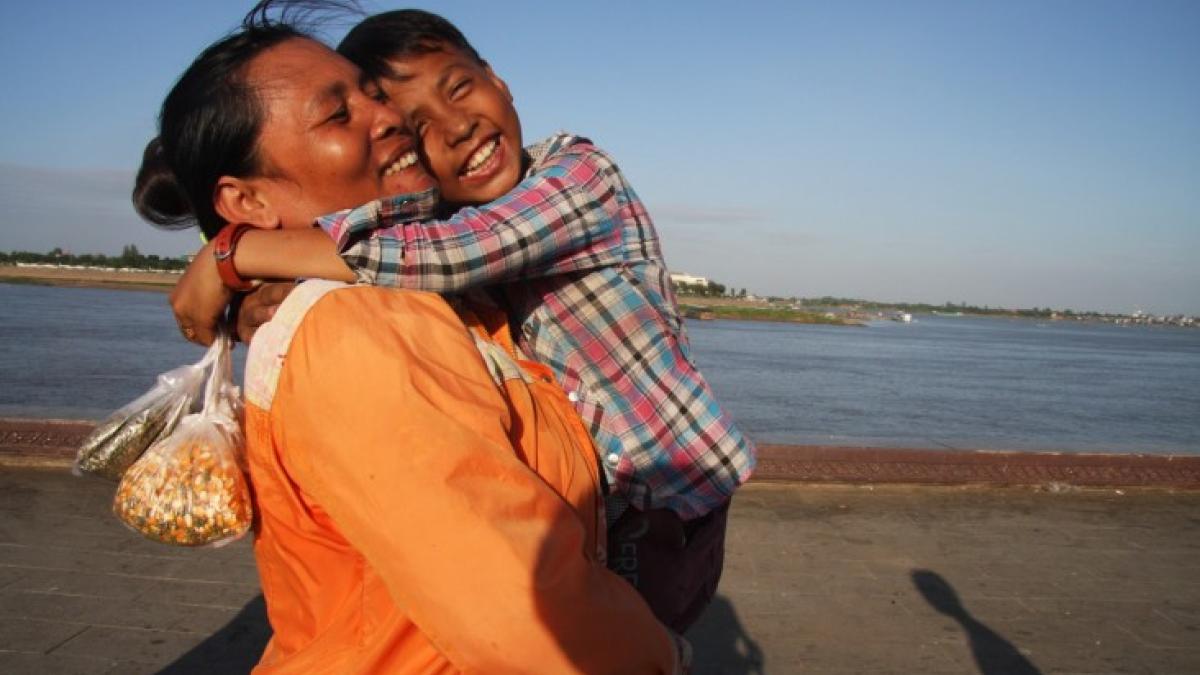
According to a new study published in The Lancet, an estimated 1.5 million children worldwide have experienced the death of a parent, custodial grandparent, or other relative who cared for them, as a result of COVID-19. The study, co-authored by USAID, alongside the U.S. Centers for Disease Control and Prevention, the World Health Organization, the World Bank, and several leading universities, examines how these children are at risk of profound short- and long-term adverse effects on their health, safety, and well-being. The co-authors and respective institutions, including USAID, have jointly issued the report, “Children: The Hidden Pandemic 2021– A joint report of COVID-19- associated orphanhood and a strategy for action,” outlining the study findings and the recommended response. Read a Statement on The Lancet study from the U.S. Government Special Advisor on Children in Adversity and our Technical Guidance Note: Critical Action For The Protection And Care Of Children In Adversity During The Covid-19 Pandemic |
The United States Government envisions a world in which all children thrive within protective, loving families, free from deprivation, violence, and danger. Strengthening the capacities of children, adolescents, and the families who love and care for them is one of the best investments a country can make to eliminate extreme poverty, boost economic growth, and promote a peaceful society.
Yet, millions of children and adolescents around the world live without protective, nurturing, and loving family care as a result of poverty and other factors, including disabilities, disease, humanitarian crisis, exploitative labor, or human trafficking. Evidence shows that when children face chronic, unaddressed adversities, the resulting toxic stress can have life-long, debilitating mental, emotional, and physical effects, not just on them and their families, but also on the societies and countries where they live, across generations.
Strategic investments in parents, children, and families, in all their diversity, can mitigate the effects of adversity, and produce gains to children, families, communities, and nations.
Our Focus
In June 2019, U.S. Government Departments and Agencies launched Advancing Protection and Care for Children in Adversity: A U.S. Government Strategy for International Assistance (2019–2023), or APCCA Strategy, which outlines the U.S. Government’s whole-of-government commitment and approach to investing in the development, care, dignity, and safety of the world’s most-vulnerable children and their families.
The APCCA Strategy builds on the progress achieved since the 2005 enactment of Public Law 109-95: The Assistance for Orphans and Other Vulnerable Children in Developing Countries Act (P.L. 109-95) in delivering better outcomes for children around the world who face significant deprivation and danger, and provides a shared basis for continued, evidence-based, and collaborative action. The U.S. Government partners involved in implementing the APCCA Strategy include the U.S. Departments of Health and Human Services, Labor, and State; the Peace Corps; and USAID.
USAID’s Children in Adversity team within Inclusive Development serves as the APCCA Secretariat, the body responsible for oversight and coordination of the whole-of-government response to P.L. 109-95. The Secretariat provides stewardship of the APCCA Strategy’s goals and objectives and coordinates U.S. Government Interagency activities. The Secretariat is led by the U.S. Government’s Special Advisor on Children in Adversity, who fulfills the responsibilities mandated by Congress under P.L. 109-95.
The Children in Adversity team also manages USAID’s long standing Displaced Children and Orphans Fund, and implements programs that support the Strategic Objectives and Guiding Principles outlined in the APCCA Strategy:
U.S. Government Approach
Strategic Objectives
Three interrelated, interdependent, and mutually reinforcing, evidence-based strategic objectives inform the U.S. Government’s policies and programs:
Build Strong Beginnings: The U.S. Government will promote nurturing care for the most-vulnerable newborns and young children, starting before birth, by funding and supporting comprehensive and integrated programming in early-childhood development to provide for children’s health, nutrition, safety and security, responsive caregiving for social and emotional well-being, and opportunities for early learning.
Put Family First: The U.S. Government will support those most vulnerable children who are, or are at risk of, living outside of family care by promoting, funding, and supporting nurturing, loving, protective, and permanent family care.
Protect Children from Violence: The U.S. Government will promote, fund, and support the protection of children from violence, exploitation, abuse, and neglect by investing in preventative and responsive programming.
Guiding Principles
In addition, the APCCA Strategy applies five guiding principles when funding and supporting programs internationally to support vulnerable children and their families:
Adapt Approaches: The U.S. Government will adapt programs and policies to a child’s age, life stage, and gender, with attention to disabilities, to increase the effectiveness of the interventions it funds.
Strengthen Systems: The U.S. Government will assist governments and civil society in partner countries to build and strengthen their capacities to support, manage, and finance their social-service and child-protection systems fully.
Generate and Use Evidence-Based Information: The U.S. Government will use the best available data for decision-making and employ research, implementation science, and programmatic learning to design evidence-based and evidence-informed policies, programs, and practices and adapt them according to the findings.
Create Synergies: The U.S. Government will work across Departments and Agencies to promote the best possible outcomes for children and families around the world by fostering synergies across sectors and breaking down silos where they exist.
Promote Strategic Partnerships: The U.S. Government will engage and mobilize a broad range of resources and stakeholders, including governments, civil society, faith-based organizations, and donors to increase the scale and effectiveness of the U.S. Government’s international efforts.
Resources
- APCCA Official Website
- Advancing Protection and Care for Children in Adversity: A U.S. Government Strategy for International Assistance (2019–2023)
- Advancing Protection and Care for Children in Adversity Implementation Plan
- Public Law 109-95: The Assistance for Orphans and Other Vulnerable Children in Developing Countries Act
- Annual Reports to Congress
- Family Care for Children with Disabilities: Practical Guidance for Frontline Workers in Low- and Middle-Income Countries
